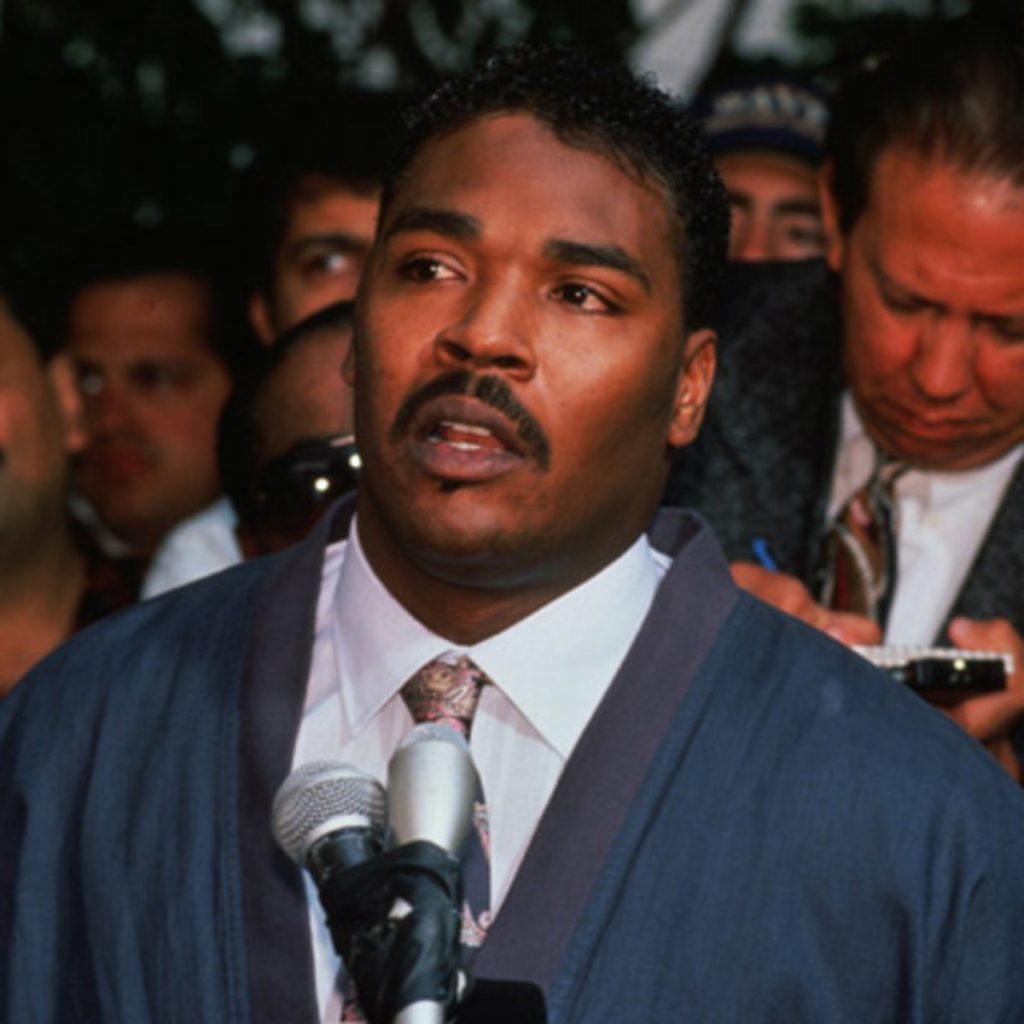
In one of my Civil Rights History classes way back when, the professor explained why the NAACP very specifically took up the case of Rosa Parks as a means of challenging the Jim Crow era bus segregation laws. She had been a secretary for the organization for a number of years and had an unimpeachable background. By contrast, a few months prior to Mrs. Parks’ famous arrest, Claudette Colvin had been also been arrested for refusing to give up her seat for a white person. Her case joined other, similar cases that went to trial and ultimately undid the bus segregation laws for good. However, the NAACP did not publicize her case because she was an unwed, teenaged mother, something that undoubtedly would have been a distraction, particularly in the 1950s. As a political strategy, one can understand the NAACP’s reasoning.
But sometimes, history happens. Sometimes the “right” person, the unimpeachable person, is not what fate delivers. Rodney King already had a past, including encounters with the criminal justice system, by the time of his infamous beating in March of 1991. But he is who fate delivered as an archetype of gross police violence. He case did not challenge an unjust law, however. There are no laws on the books that say “beat black people senseless when they resist arrest.” That’s not what his beating exposed. Instead it showed what can happen when people of a certain demographic, in this case black males, antagonize police officers who feel their authority is being threatened. This is a different type of discrimination, the sort that is common, however, in this post Jim Crow age. After the Civil Rights movement, instances of discrimination have become harder to codify and thus harder to prosecute and remedy. Similarly, it has become harder to have a conversation about disparities in society based on factors like race and class. Rodney King’s beating brought this conversation uncomfortably to the forefront.
In the minds of many, all over the world, the Rodney King case was perfectly cut and dry. Yes, the man resisted arrest. No, the man did not deserve or need to be beaten senseless because of that. Once he was restrained, he should have been taken in, booked, and handed over to a judge. It didn’t happen that way, and what did happen caused international outrage. Sadly, in the minds of many others, including those on the jury for the four officers prosecuted and ultimately acquitted for beating Mr. King, the beating was inevitable, or worse deserving. They felt this way because he had past encounters with the law or simply because he was a Big Scary Black Man who disobeyed officers. These attitudes form the crux of the uncomfortable conversation society has been presented in light of Mr. King’s beating.
And now the debate is happening all over again, just a couple of months after the 20th anniversary. Rodney King has died. And in light of his death, debates about the man, his life, his beating, and his place in Civil Rights history have begun all over again on message boards across the Internet. The nay-sayers, sounding much like the jury that acquitted the beating officers, have opined that he was no victim, that he brought his troubles on himself, and, by extension, that he got what he deserved. One person in the comment section of Joe. My. God. even went through the trouble of listing out all of Mr. King’s crimes and offenses in chronological order, and then ended by calling him a “scumbag” and declaring that “the world is better off without him.”
Such tasteless statements are par for the course, alas. He was not a perfect man. He was not a Rosa Parks who possessed an unimpeachable background. But for the type of discrimination he revealed, he was in fact the only choice possible. Mr. King forces us to consider, do all citizens, regardless of their race or socioeconomic background, deserve human sympathy, courtesy, and equal treatment by the police and in the eyes of the law? As demonstrated by the commenter above, this is a test that many fail.
The conversation about racial profiling and racial discrimination in this post Civil Rights era is harder and harder to have, as Mr. King’s life and death have proven. Mr. King’s words, spoken at the height of the rebellion in haunted, halted speech, “Can we all just get along?” seem as much a pipe dream now as they did twenty years ago. We can’t have the conversation if people refuse to participate. But have it we must. It doesn’t matter that the showcase person for police brutality and racial profiling was not a perfect man. It matters that his case showed just how much work we have to do to make the world a more just place.
This is something Mr. King himself came to terms with just months before his death:
In an interview with The Times this year, King confided that he was at peace with what happened to him.“I would change a few things, but not that much,” he says. “Yes, I would go through that night, yes I would. I said once that I wouldn’t, but that’s not true. It changed things. It made the world a better place.”
-LA Times, June 17, 2012
© 2012 – 2021, gar. All rights reserved.
